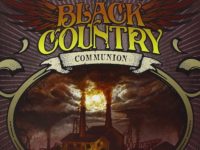Everyone knew who the B-52’s were after “Rock Lobster” went nationwide at the close of the Me Decade. They still do. After all, who can forget that bucking backbeat, “96 Tears” Farfisa organ, low-tuned surf guitar and girl vocals inspired by Plastic Ono Band. (Yoko Ono’s Plastic Ono Band, that is.)
It sounded so alien and familiar at once, as if the aliens landed at a beach party in 1966. And instead of the weirdness turning listeners off at a time when both disco and punk reigned supreme, we loved it. Released on July 6, 1979, as part of the B-52’s eponymous album debut, “Rock Lobster” was zany enough to soften the defenses of the most stubborn music snob. Besides, it was too ingenious to be dismissed as hackneyed by them, anyway.
Yet, even with all of that going for the song, it wasn’t enough to qualify “Rock Lobster” as a hit. This remains the B-52’s signature song, and an iconic party tune for the ages, but it only reached No. 56 on the Billboard Hot 100 – while shooting up all the way to No. 1 in Canada. What’s up with that, Late 1970s America?
I still remember seeing the spectacle of the band play it on TV (Saturday Night Live, if I recall correctly) and those chicks with some outlandish beehive hairdos singing like it’s Halloween, as Fred Schneider yells out goofy-assed words and phrases. But what really caught my eye was Ricky Wilson’s guitar: there was only one string on it, maybe two, and he was playing the entire riff on it.
Right then and there, I realized the genius of the “Rock Lobster.” It’s the opposite of the heavy orchestration of disco, the opposite of the anger found in most punk. By making it simple, campy and extremely loose, the B-52’s – in their own warped way – brought us back to the original intent of party rock music.




